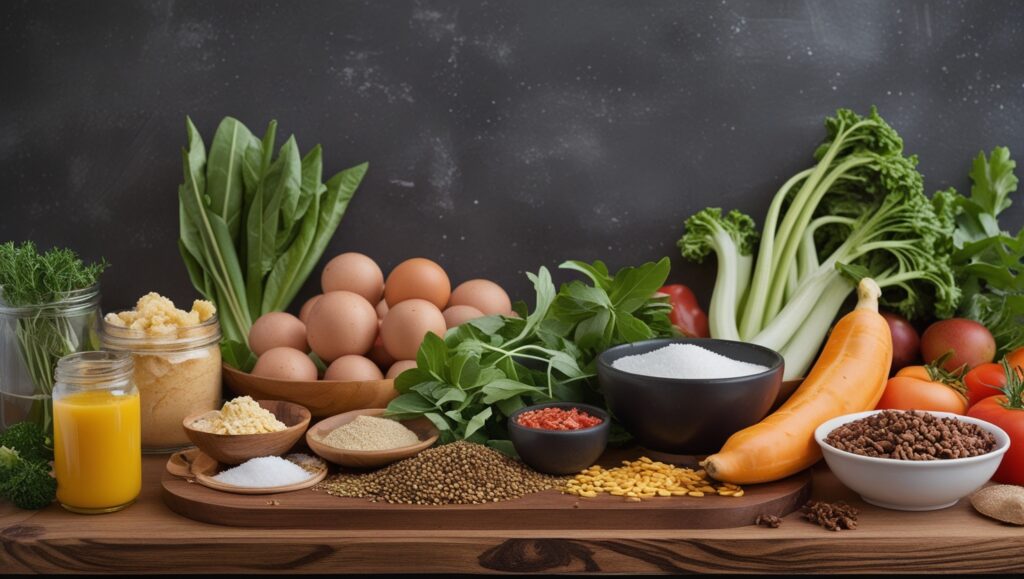Healthy food for kids: Healthy food for kids is essential for their growth, development, and overall well-being. Providing children with a balanced diet rich in nutrients helps support their physical and mental development during crucial years. Establishing healthy eating habits early on can prevent childhood obesity and reduce the risk of chronic diseases later in life.
Top 10 healthiest foods for kids:

- Eggs:
Eggs are nutritional powerhouses packed with protein and 18 essential vitamins and minerals. A medium-sized egg contains around 6.4 grams of protein.
Nutritional content:- Protein: Eggs are an excellent source of high-quality protein, containing essential amino acids.
- Vitamins: Eggs contain vitamins B12, D, A, and K.
- Minerals: Eggs provide important minerals such as iron, zinc, selenium, and phosphorus.
- Fats: The egg yolk contains about 5 grams of healthy fats.
Research has shown that pregnant and breastfeeding mothers who eat eggs are more likely to meet their child’s brain development needs, which are important for learning and memory. Eggs can also help regulate and maintain a child’s weight.
2. Yogurt: Yogurt is made through the bacterial fermentation of milk and can be an excellent snack or meal component for kids, offering essential nutrients like calcium, protein, and probiotics that support growth and digestive health.
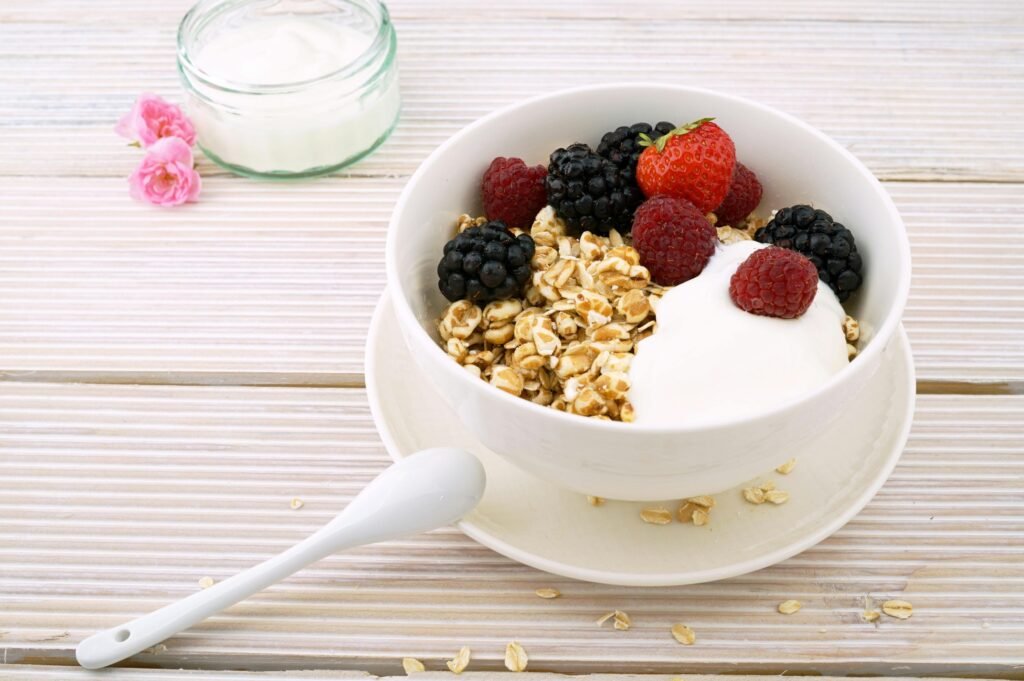
Yogurt Benefits for Kids:
- Bone Health: The calcium and vitamin D in yogurt are crucial for building strong bones and teeth.
- Digestive Health: Probiotics in yogurt help maintain healthy gut flora, aiding digestion and boosting immunity.
- Protein: Protein supports muscle growth and repair, which is important for active children.
- Vitamins and Minerals: Yogurt is rich in essential nutrients like B vitamins, which are important for energy production and overall health.
How to incorporate yogurt into a child’s diet: - Low-sugar options: Many flavored yogurts contain added sugars.
- Check the labels: Look for yogurt that has live and active cultures, minimal added sugars, and no artificial additives.
- Consider full-fat for younger kids: Full-fat yogurt is often recommended to support their energy needs and brain development.
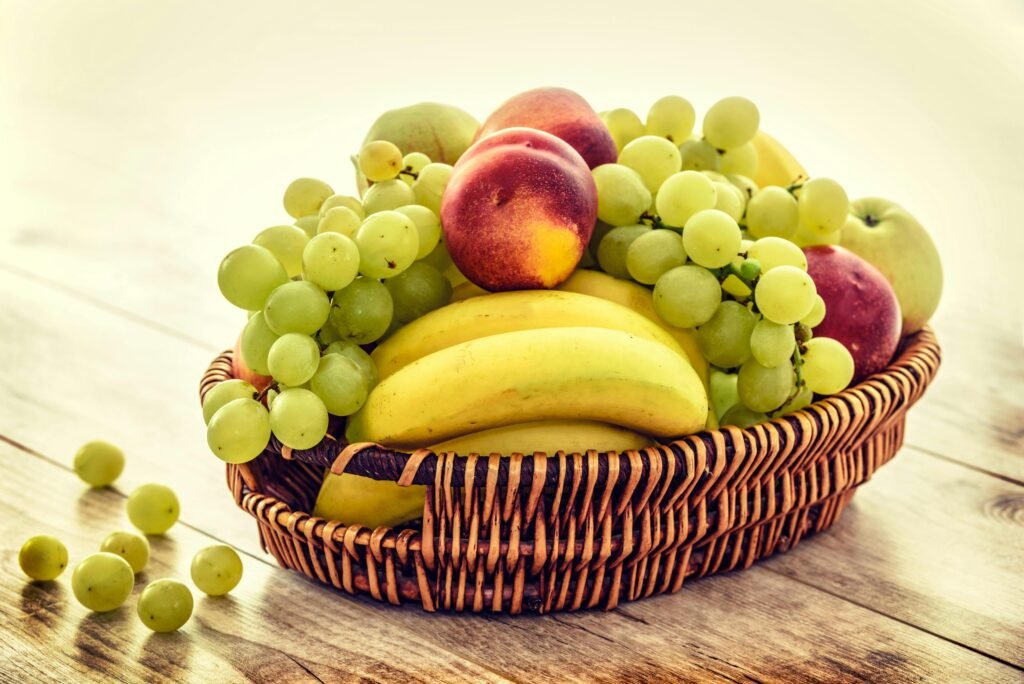
3. Fruits: Fruits that are generally good for children include bananas, apples, strawberries, oranges, and grapes.
- Bananas: Bananas are rich in carbohydrates, zinc, sodium, and iron. Eating bananas on an empty stomach in the morning can increase weight, strengthen bones, and boost immunity
- Apples: Apples offer fiber, vitamins B6 and C, and antioxidants to help children thrive. They promote good digestion, support heart health, and boost brain power.
- Strawberries: Strawberries boost immunity in children, thanks to their high vitamin C content, which aids in iron absorption. They also contain dietary fiber, which is important for digestive health, and antioxidants like anthocyanins that protect against oxidative stress.
- Oranges: Oranges are rich in vitamin C, which boosts the immune system, protects against colds and infections, and aids in iron absorption. Oranges also contain 87% water, helping to keep kids hydrated, especially in hot weather.
- Grapes: Grapes are packed with antioxidants, such as flavonoids and resveratrol, which help protect cells from damage. They are also a good source of vitamins C and K, which support the immune system, promote healthy skin and aid in wound healing. Grapes contain dietary fiber, which promotes healthy digestion and helps prevent constipation.
4. Milk: Milk is a distinguished source of calcium, which helps children’s bones grow strong. It is also a good source of vitamin D, which is essential for calcium absorption and supports the immune system. Milk is rich in B vitamins, including B12 and riboflavin, which are important for energy production and supporting the nervous system. If your child is lactose intolerant, there are lactose-free options available, as well as milk alternatives like almond milk.
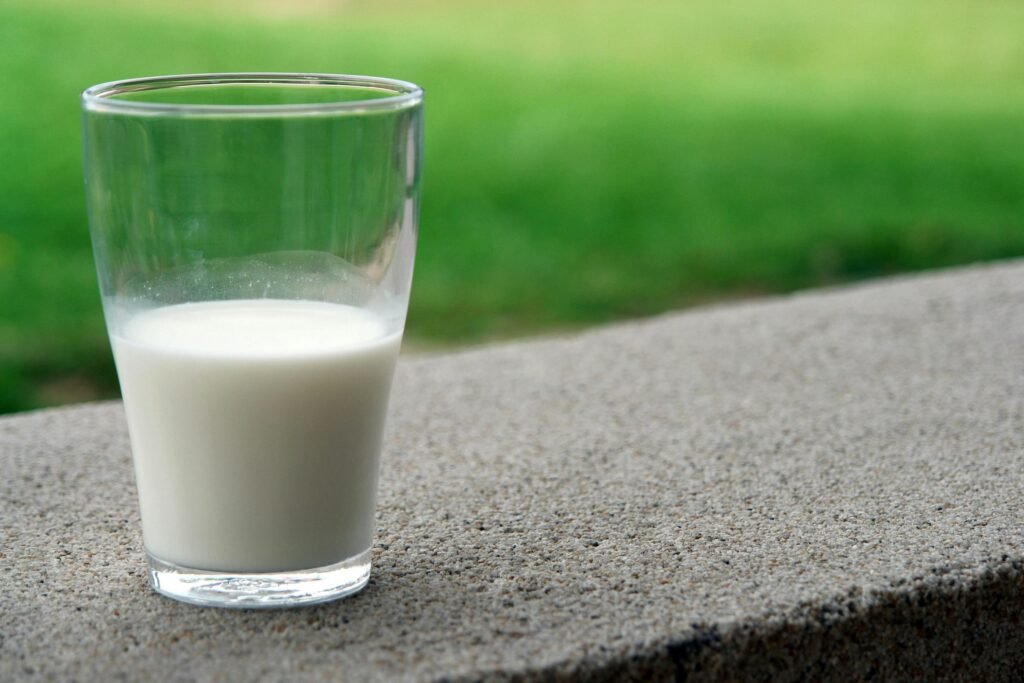
5. Sweet Potato: Sweet potatoes are full of fiber, vitamins, and minerals, and are a powerhouse of nutrition that supports gut health, boosts immunity, and provides sustained energy. They are rich in vitamins A and C and potassium. The fiber in sweet potatoes supports healthy digestion, prevents constipation, and supports a healthy gut microbiome.
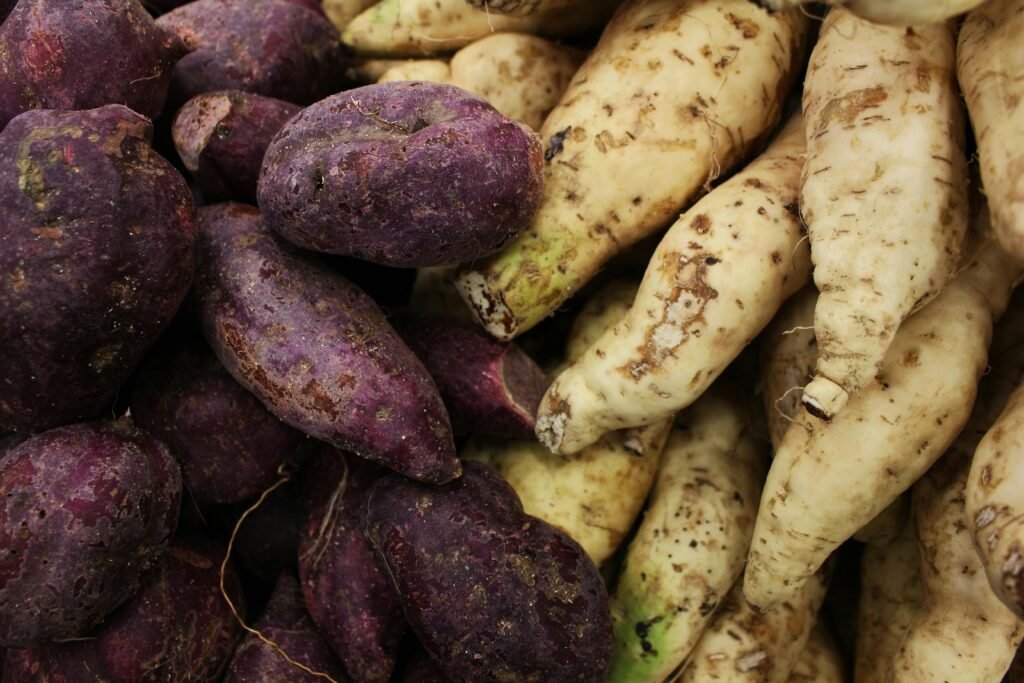
5. Nuts:
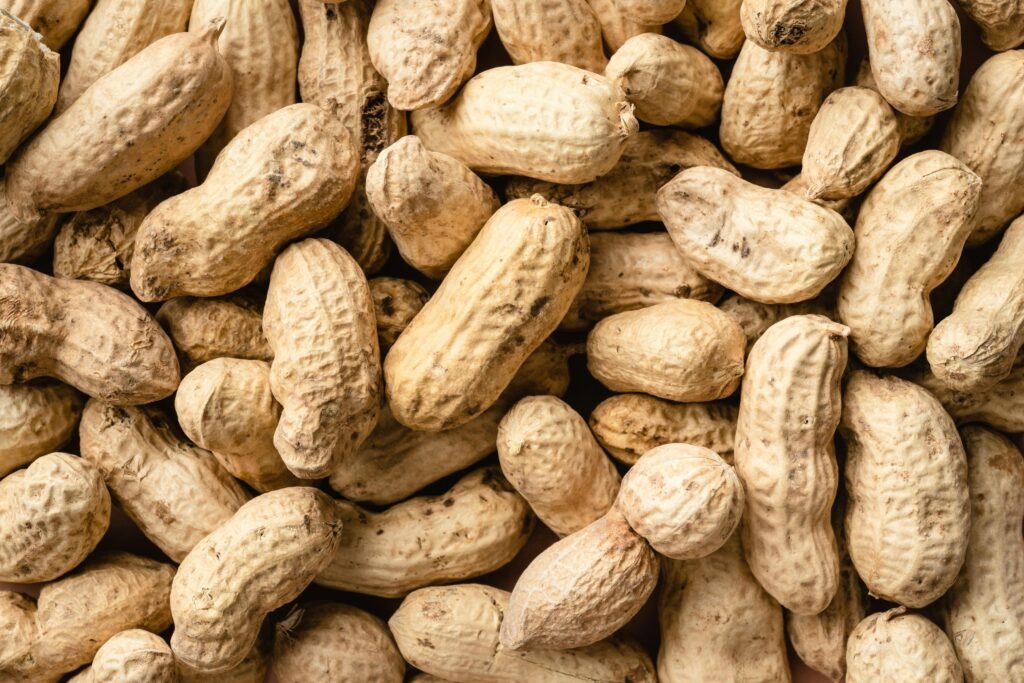
- Nuts are a natural powerhouse of nutrients like vitamins, minerals, antioxidants, healthy fats, protein, and fiber, which help children grow, develop, and learn.
Key vitamins and minerals in nuts:
- Vitamin E: Nuts like almonds, hazelnuts, and sunflower seeds are rich in vitamin E, which acts as a powerful antioxidant and supports skin and immune health.
- B vitamins: Nuts such as walnuts, peanuts, and cashews contain several B vitamins, including B6, B3, and B1, which support overall metabolism and brain health, aiding in cognitive function, memory, and mood regulation.
- Folate (Vitamin B9): Folate is essential for DNA synthesis and cell division. It also helps lower homocysteine levels, reducing the risk of cardiovascular diseases.
- Magnesium: Although not a vitamin, magnesium is a crucial mineral found in nuts like almonds and cashews, which supports muscle function and energy production.
7. Oatmeal:
Oatmeal is a type of hot porridge made from pals, typically with water or milk, and often enjoyed as a nutritious breakfast. It has 68 calories.
| Foodstuff/Component | Amount |
| Total fat | 1.4mg |
| Cholesterol | 0 mg |
| Sodium | 49mg |
| Potassium | 61mg |
| Total Carbohydrate | 12mg |
| Protein | 2.4mg |

Oatmeal is a type of hot porridge made from pals, typically with water or milk, and often enjoyed as a nutritious breakfast. It has 68 calories.
- Benefits of oatmeal:
- Oatmeal contains essential nutrients, including vitamins, minerals, and antioxidants like manganese, phosphorus, magnesium, and iron.
- Oats contain large amounts of beta-glucan, a type of soluble fiber. It partially dissolves in water and forms a thick and gel-like solution in your gut. This beta-glucan fiber reduces blood glucose and insulin response and increases the growth of good bacteria in the digestive tract.
- Oats reduce the regulation of type 2 diabetes.
- One major risk factor for heart disease is a high risk of blood pressure.
- Oats may help lower blood sugar levels, particularly in people with obesity or type 2 diabetes, These effects are primarily attributed to the beta-glucans ability to form a thick gel that slows stomach emptying and glucose absorption into the blood.
- Aids in weight management: Oatmeal can help control appetite, making it easier to manage weight by reducing the tendency to overeat.
- Oatmeal can be easily customized with various toppings, making it a convenient and versatile meal option.
8. Avocado:
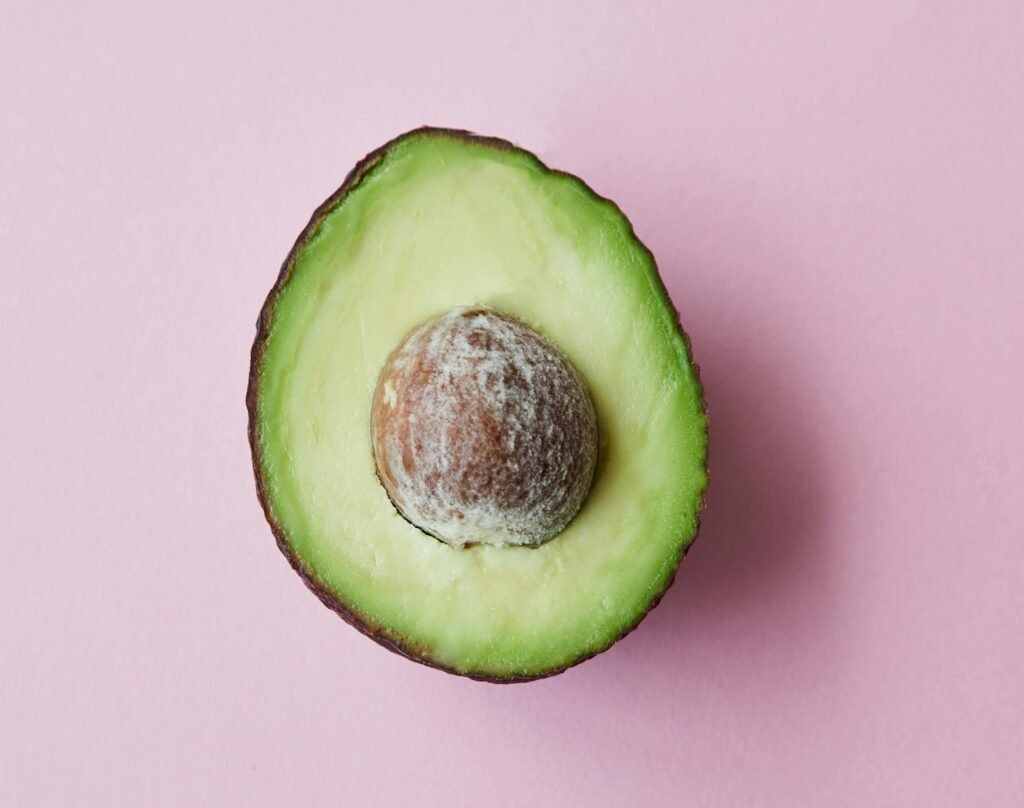
- Avocado is a creamy, green fruit rich in healthy fats, vitamins, and minerals.
Nutritional content (per medium avocado):- Calories: 240
- Carbohydrates: 13g
- Protein: 3g
- Fat: 22g
- Fiber: 10g
- Sodium: 11mg
Avocados are a good source of vitamins C, E, K, and B6, as well as folate, magnesium, and potassium, all essential for growth and development.
Serving suggestions: - Dice and sprinkle into salads, soups, tacos, or whole grains.
- Serve avocado slices alongside scrambled eggs or on toast.
- Make an avocado salad by mixing avocado cubes with fruits like mango, orange, or strawberries for a refreshing fruit salad.
- Add slices of avocado to sandwiches or wraps for a creamy texture.
9. Salmon:

- Salmon is an excellent choice for kids due to its numerous health benefits.
- High in Omega-3 fatty acids: Essential for brain development and cognitive function.
- Supports growth and muscle development:
- Vitamins D, B12, and B6: Crucial for bone health, energy production, and nervous system function.
Salmon is a nutritious and versatile fish that can easily be included in a child’s diet, offering essential nutrients for their growth and overall health.
10. Berries:

Berries are small, round, juicy fruits that are delicious and packed with nutrients.
- High in antioxidants: Berries like blueberries and strawberries are rich in antioxidants, which help protect the body from harmful free radicals.
- Rich in vitamins: Berries are a good source of vitamin C and vitamin K, which support the immune system and bone health.
Berries are a healthy addition to a child’s diet, helping keep kids full longer and providing a burst of flavor and numerous health benefits.

